Estimated reading time: 12 minutes
Do you know? Importing building materials from China can save you almost 30% to 50% in costs.
If you read this guide about importing building materials, you’ll learn how to find a reliable building materials supplier.
Please remember that a trustworthy partner offers more than just short-term gains. Their value is immeasurable.
In this blog, you’ll find everything you need about importing building materials from China. Moreover, we’ll share some handy tips on selecting the right materials.
Let’s discuss them from A to Z.
China’s Major Building Material Markets
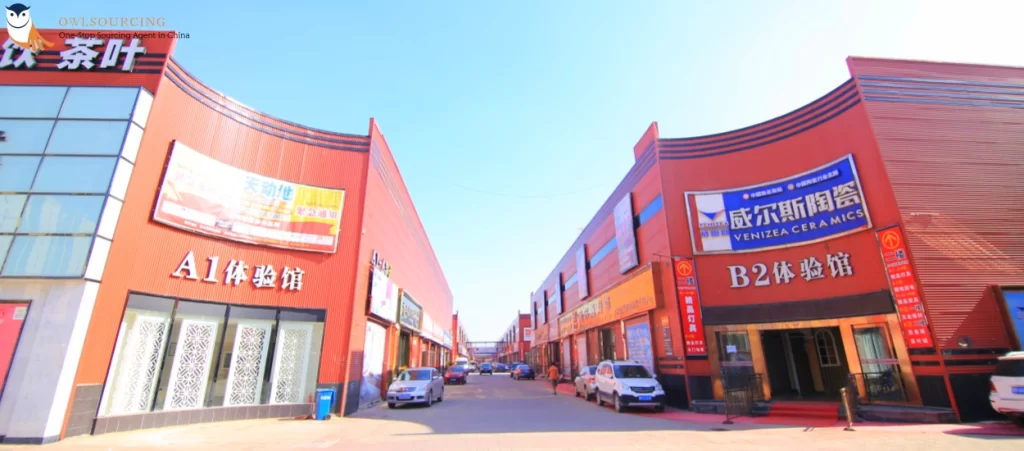
1. Furniture Markets
| Location | Market Name | Overview & Price Level | Products | Address |
|---|---|---|---|---|
| Foshan, Guangdong | Louvre Furniture Mall | Largest in Lecong; high-end European/modern styles. (High-end) | Home/office furniture, sanitary ware | 325国道乐从路段罗浮宫国际家具博览中心, Shunde, Foshan |
| Foshan, Guangdong | Sunlink Furniture (North) | 400+ brands; shuttle services, international trade. (Medium–High) | Office/living/bedroom furniture, mahogany | No.325 National Highway, Lecong, Foshan |
| Foshan, Guangdong | Sunlink Furniture (South) | Budget-friendly; hosts annual furniture shows. (Low-end) | Home/hotel furniture | Xinlong Rd, No.325 National Highway, Lecong |
| Foshan, Guangdong | Shunde Empire Furniture | 21+ years in business; 4 showrooms (Royal, Noble, Modern, Pricerite). (Medium–High) | Home/hotel furniture | 325 Highway (Lecong section), Shunde, Foshan |
| Dongguan, Guangdong | Houjie International Furnishing | Integrated services (finance, HR, advertising). (Medium) | Office/hotel/children’s furniture | Zhuyuan Rd, Dongguan |
| Jiangsu | Suzhou Furniture Expo Center | 4 floors of boutique furniture. (High-end) | Modern/classic furniture, sofas, beds | 1300 Xiangcheng Ave, Likou |
2. Door & Window Markets
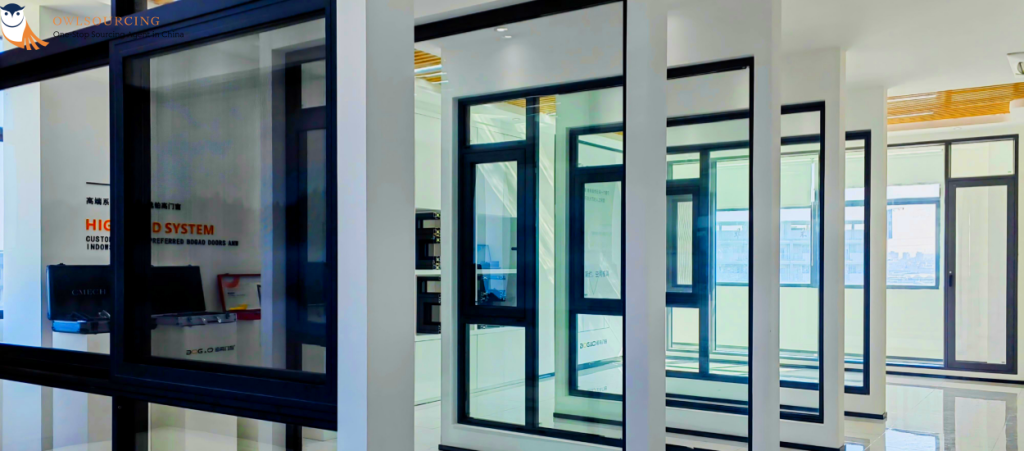
| Location | Market Name | Overview | Price Level | Products | Address |
|---|---|---|---|---|---|
| Foshan | Huayi Decoration Materials | Largest building materials market; 600+ suppliers. | Medium | Wood/aluminum doors, windows, flooring, hardware | Chancheng District, Foshan |
| Shanghai | Huaxin Aluminum Market | Wholesale aluminum doors/windows; accessories. | Low–Medium | Aluminum products, silicone, handles | 1189 Huateng Rd, Huaxin Town, Qingpu |
3. Stone & Marble Markets
| Location | Market Name | Overview | Price Level | Products | Address |
|---|---|---|---|---|---|
| Yunfu, Guangdong | Yunfu International Stone Town | World-renowned stone hub; exhibition/research centers. | Medium–High | Stone slabs, finished products | Yunshi Ave, Yuncheng District, Yunfu |
| Fujian | Minnan Building Material No. 1 | “China Stone City”; 1,000+ processing plants. | Low–Medium | Large slabs, marble, craft stones | 324 National Highway, Shuitou Town, Nan’an |
4. Ceramic Tile Markets
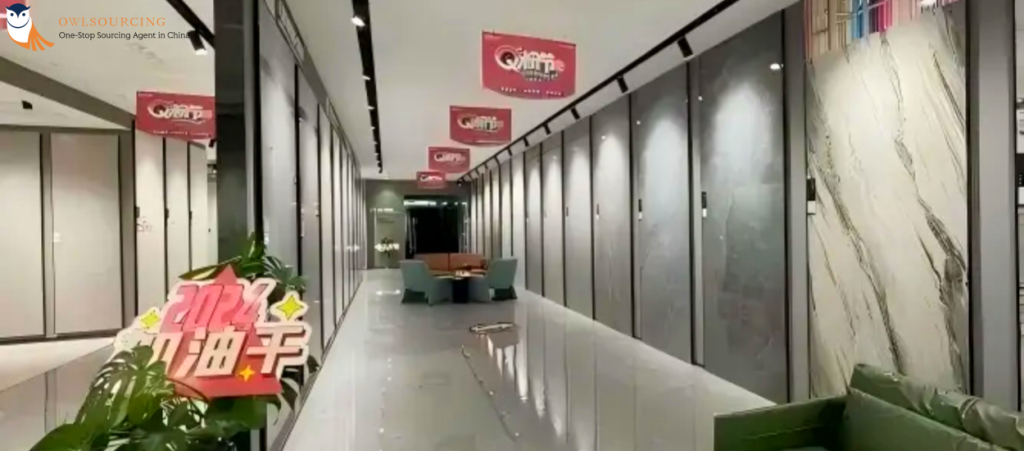
| Location | Market Name | Overview | Price Level | Products | Address |
|---|---|---|---|---|---|
| Foshan | Nanzhuang Huaxia Ceramic Expo | “Hometown of Chinese Ceramics”; global reach. | Low–High | Ceramic tiles, sanitary ware | Huaxia Ceramics Expo City, Nanzhuang Town |
| Foshan | China Ceramics Market | 180+ brands; international business services. | Medium–High | Polished/glazed tiles, mosaics, bathroom hardware | 2 Jiangwan 3rd Rd, Chancheng District, Foshan |
5. Bathroom Fittings Markets
| Location | Market Name | Overview | Price Level | Products | Address |
|---|---|---|---|---|---|
| Foshan | Foshan Int’l Plumbing & Sanitary | 1,500+ shops; grid layout. | Low–Medium | Plumbing, sanitary ware | First Ring Rd, Jihua West Rd, Foshan |
| Fujian | China Plumbing Park | Largest high-grade valve market; 500+ manufacturers. | Low–Medium | Plumbing valves, sanitary ware | Provincial Highway 308, Nan’an, Quanzhou |
6. Lighting Markets

| Location | Market Name | Overview | Price Level | Products | Address |
|---|---|---|---|---|---|
| Zhongshan, Guangdong | Times Lighting Square | 25 floors; integrates retail, hotel, and leisure. | Medium–High | Comprehensive lighting | 12 Xinxing Middle Rd, Guzhen Town |
| Zhongshan, Guangdong | Star Alliance | AAA tourist attraction; 400+ brands. | High-end | Lanterns, commercial lighting | Zhongxing Rd, Guzhen Town |
What Types of Building Materials are Worth Importing from China?
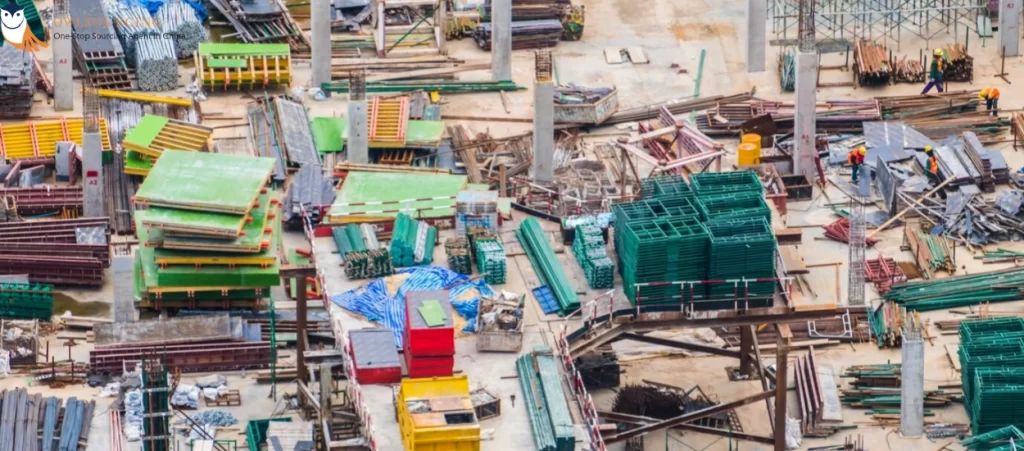
My answer is: Everything.
As we mentioned earlier, there are a variety of products available in China. Whether it’s concrete, steel, or decorative materials like tiles and glass.
Whatever you need, you can find it in China. Below is a type list of building materials in China:
1) Importing Construction Materials from China
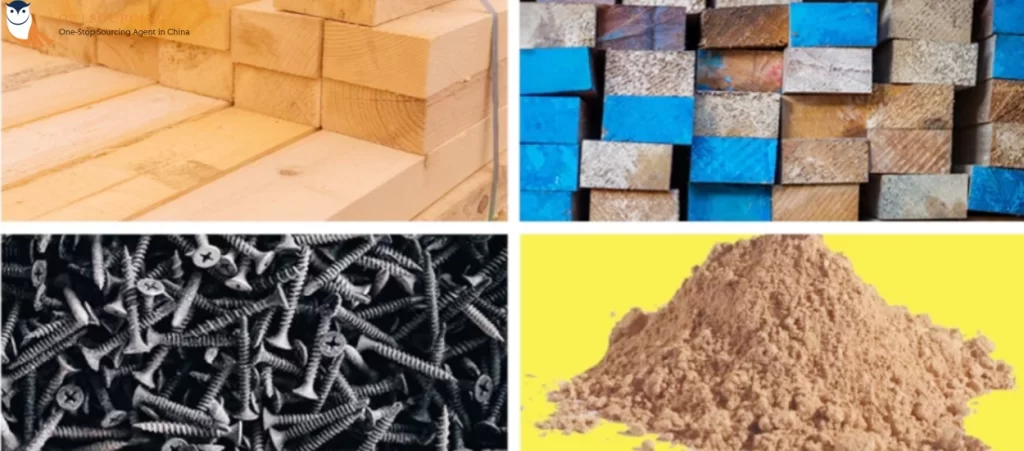
- Steel: Rebar, beams, steel plates.
In 2022, China was one of the countries with the highest value of exports of selected iron and steel building materials.
China exported 19 billion U.S. dollars worth of structures and parts of structures.
The following countries in the ranking were Germany and Poland. China was also at the top of the ranking of global mineral building material exporters.
From: Statista
- Concrete: Precast concrete components, cement.
- Timber: Plywood, wooden beams, engineered wood.
2) Importing Decorative Materials from China
- China Tiles and Stones: Floor tiles, wall tiles, marble, granite.
- Paints and Wallpapers: Various interior and exterior paints, as well as decorative wallpapers.
- Glass Products: Flat glass, tempered glass, decorative glass.
3) Importing Functional Materials from China
- Insulation and Soundproofing: Insulation boards, soundproofing cotton, etc.
- Waterproofing Materials: Waterproof membranes, waterproof coatings.
4) Importing Doors, Windows, and Accessories from China
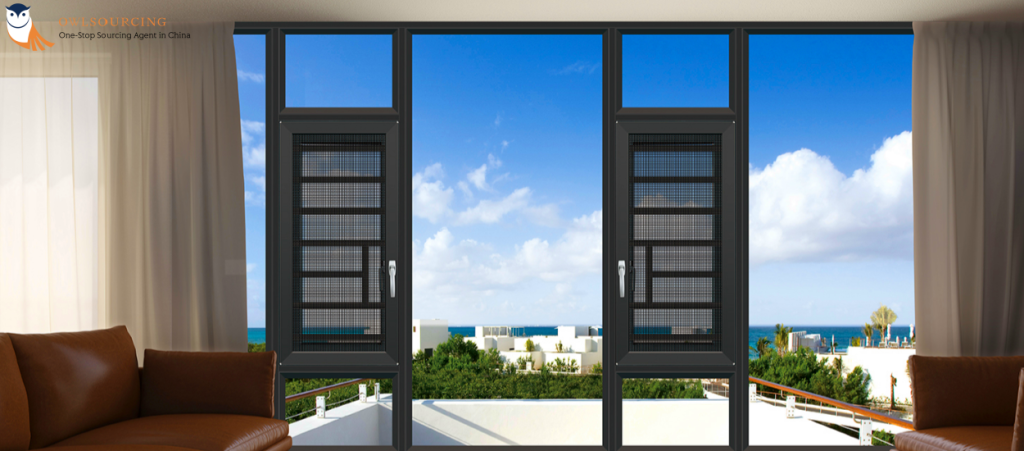
There are different types of window materials, which are as follows: Vinyl, wood, aluminum, and composite windows.
Select window types that will fit both new and old types of buildings.
For importing Doors from China, Choices can be pre-hung or door slabs, so whether they will slide or swing, and the type of material ranges from classic wood to more modern fibreglass.
Buying should be done while carefully considering door handling, whether the door swings in or out, as well as the door’s width.
- Aluminium or uPVC doors and windows.
- Door and window hardware accessories.
5) Importing Staircases and Railings from China
Standard or customized staircases, such as straight, spiral, and circular staircases, are easily found in the market.
6) Importing Kitchen Cabinets and Wardrobes
On this, one can opt between flat-packed and ready-to-assemble cabinets based on the cost of labour in the region.
7) Importing Flooring from China
- Wood Flooring: Prevent variation in texture on different batches and also prevent repetition in the pattern manufacturing of laminate floorings.
- Vinyl and Laminate Flooring: To cater to installation mistakes, buy extra quantities (7- 10%).
Windows
8) Importing Roofing Materials from China
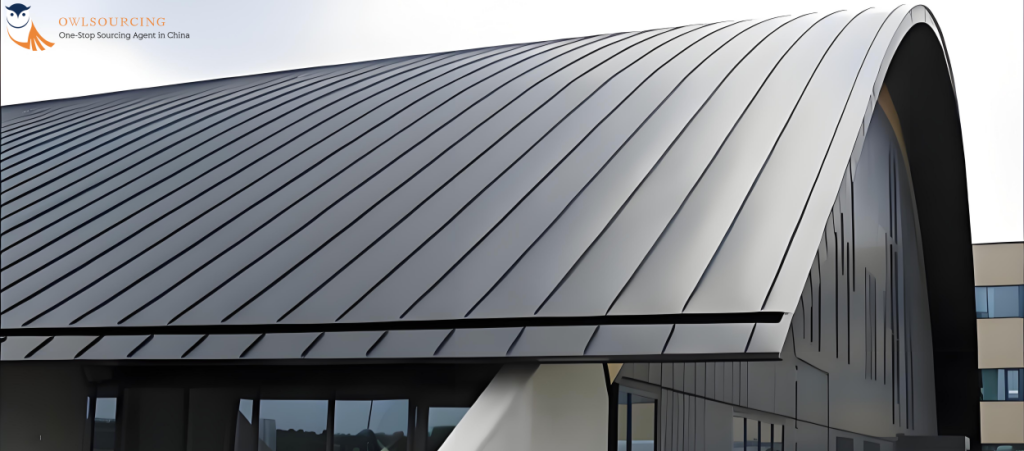
Types of roofs include asphalt, metal, tiles, and solar shingle roofs. In addition, see that the material of the building fits the area where it is located.
9) Importing Bathroom Fittings from China
Washbasins, toilets, and bathroom cabinets can be bought at various prices that determine the quality of the material and its working usefulness.
10) Raw Building Materials to Import from China
It should be noted that China is one of the largest sources of raw building materials to import around the world.
- Marble: Select different types, colors, and textures and ensure that they are standard between different batches.
- Glass: Possible products are toughened, laminated, and insulating glass for specific uses.
- Cement: This provides that the importation of cement may warrant certain permission and tests as may be dictated by the importing country.
11) Importing Eco and Green Building Materials from China
- Solar panels, eco-friendly materials.
- Sustainable materials like bamboo.
How to Find Building Materials Suppliers in China?

There are many building material manufacturers in China. But how do you find them? And how do you choose the supplier that’s best for you?
In this section, we’ll provide you with methods to do just that.
1. Google Search
Google Search is an easy method of sourcing suppliers from China.
If one searches on Google, they are bound to find millions of results that deal with the suppliers of building materials.
But this can be very overwhelming sometimes since it is rather hard to distinguish between good and bad sources.
This does not mean that you cannot search for authentic Chinese building material wholesale suppliers via Google.
But then again, they could be found on the further pages of the search engine.
To refine your Google search, you may want to type in search phrases such as directories of Chinese building materials online.
These online directories could perhaps be better used in seeking Chinese suppliers.
These Chinese supplier online directories perform investigations and verifications before they post a supplier online. This way, you can get some ideas of credible participants from online directories.
2. Online B2B Platforms

You can find Chinese suppliers on online platforms, such as Alibaba. Alibaba is the world’s largest online directory for wholesale suppliers.
It boasts over 8 million active sellers and around 280 million active buyers.
Alibaba lists many building material suppliers from China. When you use Alibaba to meet your needs from China, you can work directly with manufacturers.
This means you can be involved in the product’s design, manufacturing, and shipping methods.
Note: You must be aware that through Alibaba, you’ll be dealing with a third-party manufacturer currently listed under Alibaba.
Sometimes you might find sellers displaying very cheap building materials on their websites, but when you intend to place an order, the quoted price differs, as the price marked on Alibaba is not the sale amount. You need to get the supplier to quote based on your requirements.
3. China wholesale market
More and more construction companies and retailers are starting to rely on China for building materials that are of good quality, well-designed, and affordable.
Many buyers prefer to purchase directly from manufacturers or attend the Canton Fair. However, visiting Chinese wholesale markets is another viable option.
A. China Ceramics City (Guangdong Province)
Location: 2 Jiangwan 3rd Rd, Chancheng District, Foshan, Guangdong Province, China

China Ceramics City is the first information service and trade platform of this magnitude for ceramic and bathroom fittings in China.
Combining exhibition, trading, and business services, China Ceramics City houses over 300 brands, a combination of the best and most expensive ceramic and bathroom products in China and famous foreign brands.
B. Huayi International Decoration Expo Market (Guangdong Province)
Location: Wugang Road, West Kuiqi, Chancheng, Foshan, Guangdong, China
This market features mid to high-end quality products. Most of the exhibitors are manufacturers. This huge mecca of building material supply includes products for your construction and renovation needs.
Visiting Chinese markets allows you to touch these products. You can more easily compare prices and secure the lowest cost for your purchases.
However, during this process, there might be some language barriers, as few Chinese suppliers can speak English fluently.
When you prepare to travel to China, please consider this factor. If necessary, think about hiring a translator.
3. Trading Companies
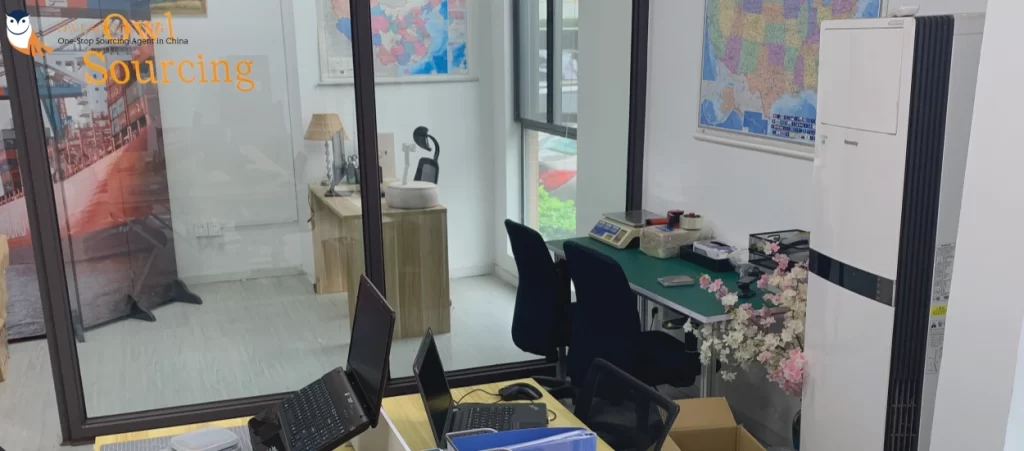
- Pros: Opportunity to get catalogues and immediate quotes.
- Cons: Increase prices by up to 40% and restrict the visibility of manufacturers.
4. Manufacturers
- Pros: A low cost with no fees charged by intermediaries.
- Cons: Affects the necessary amount of the ordered products and assumes all possible risks.
5. Sourcing Agents
- Pros: It means that sourcing agents are involved in quality control processes, and they limit possible risks.
- Cons: More service charge, but nice to be paid once in a while.
Some Strategies for Identifying Reliable Building Material Suppliers in China
- Regulate the registered capital and business license.
- Go and see factories or request a factory tour.
- It is also wise not to work with suppliers that offer to supply a variety of goods.
Which Types of Building Material Suppliers Are the Best Fit?
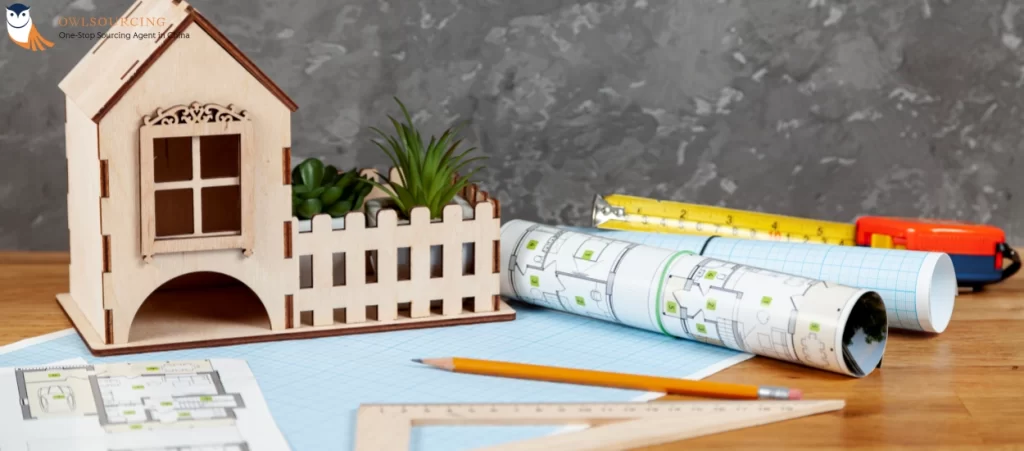
When considering importing building materials from China, you need to hire someone who is honest, qualified, experienced, and understands the rules of your country.
Maybe you could directly contact Chinese manufacturers or look for suppliers on online B2B platforms like Alibaba.
However, not all these options may suit you. Wondering which one is the best fit for you? Here’s what you need to know.
We have listed categories of building material suppliers and analyzed their pros and cons to help you make an informed choice.
| Types of Building Material Suppliers | Advantages | Disadvantages |
| Manufacturers | 1. Direct purchase reduces costs 2. Consistent quality over time | More complex communication and logistics |
| Trading Companies | 1. Wide range of products 2. Good logistics and export support | 1. Higher prices 2. Quality control depends on the manufacturers |
| Online B2B Marketplaces | Price comparison and buyer protection | 1. Higher prices 2. Quality control depends on the manufacturers |
| Specialized Manufacturers | High-quality specific products | 1. Limited product range 2. May require high-order quantities |
Of course, you can also try contacting China sourcing agents. This can save you even more money.
They use their extensive sourcing experience to help you find the most suitable suppliers in China and get the best products at the lowest prices.
When sourcing products in China, you might encounter suppliers who don’t speak English.
This makes it hard for them to understand your product needs. But now, you don’t have to worry about that anymore.
Their offices are in China and can assist you in communicating with building material suppliers.
Moreover, I have a question for you: “Do you verify the legitimacy of suppliers before collaborating with them?“
Trust is mutual, but it requires both parties to actively maintain the relationship.
However, you can’t be sure that Chinese suppliers won’t deceive you. Some suppliers are “smart”.
I believe you can understand why I use the quotes. Yes, some Chinese suppliers are bad.
They might cheat you with inferior products, reduce the quantity, or even fail to provide after-sales service! They just want your money!
Contact Owlsourcing. We firmly believe that trust is the key to cooperation.
Before sourcing, we will verify Chinese suppliers’ legitimacy and provide real photos or videos during the sourcing process to ensure customer satisfaction with our services.
We hope all our clients can smile when working with us.
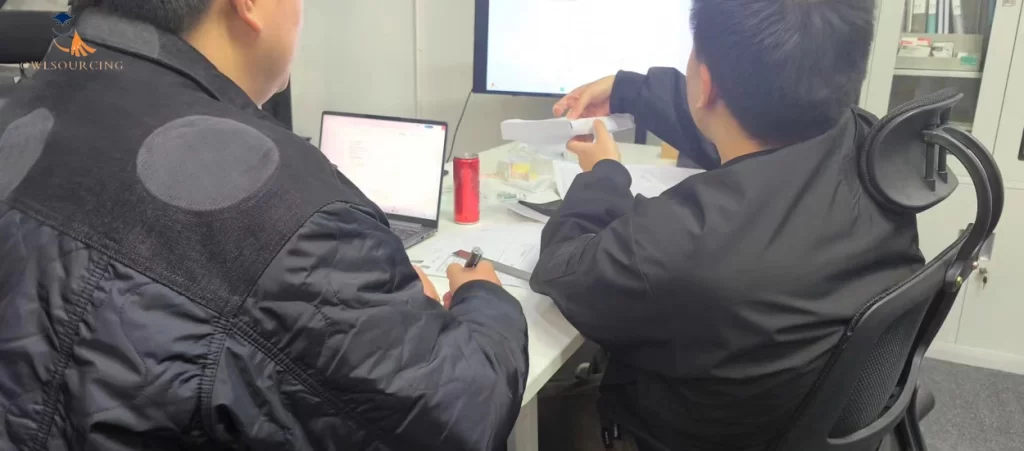
Owlsourcing Action,
Members of Owlsourcing are discussing product specific data.
Streamline Your China Building Material Imports
If you wish to import Chinese building materials, having the right building material supplier in China is essential to ensuring quality, value for money, and smooth logistics.
Owlsourcing has extensive experience in sourcing construction materials in China, delivering tailored solutions for importing building materials that are world-compliant.
Whether you need Chinese building materials in bulk for construction projects or are buying building materials from China for reselling, we connect you with reliable building materials exporters who have competitive prices and stable supply channels.
From exporting windows from China to exporting building materials from China to Australia, we make it convenient by vetting building material suppliers from China and meeting all import regulations.
As a home material import specialist or building material importer, our expertise in building material imports from China guarantees smooth transactions and quality materials.
Don’t let sourcing challenges hold you back from your project. Contact Owlsourcing today and let us help you locate the highest-quality building materials from China with ease!
What Are Some Tips for Selecting Building Materials in China?
When you face a variety of building materials in the Chinese market, do you know how to select them? In this part of the article, here are some tips on selecting building materials for your reference:
1. Save money by buying in bulk

Most suppliers offer discounts for bulk purchases, especially Chinese suppliers on Alibaba. They favor customers who wholesale their products.
This can save you on shipping costs, while also being profitable for the suppliers.
It’s a win-win situation, how delightful!
Note: You need to understand the supplier’s minimum order quantity (MOQ) in advance.
Many suppliers won’t sell products in too small quantities, as they wouldn’t make a profit otherwise.
2. Where to buy quality lighting?
The prices of these lighting fixtures might be a bit high, but they can add aesthetic value. Many Chinese retailers sell a variety of lighting styles.
However, if you’re considering buying from China, think about visiting local markets. This way, you can personally inspect the quality of the products.
For further information, you can read this article: Importing LED Lights from China
3. How to choose tile, marble, or wood flooring?
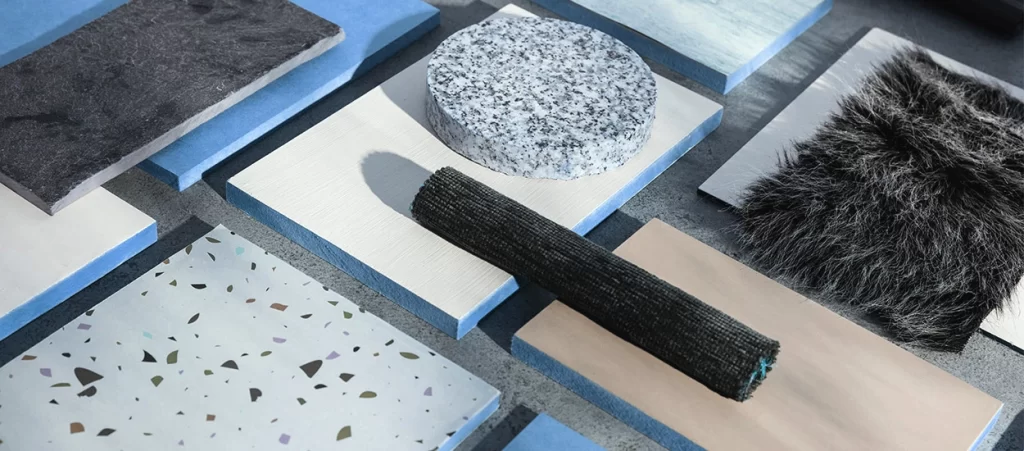
| Flooring Type | Pros | Cons |
| Tile | 1. Durable and long-lasting 2. Water-resistant 3. Easy to clean and maintain 4. Variety of designs | 1. Hard and cold underfoot 2. Can be slippery when wet 3. Grout lines can collect dirt and grime |
| Marble | 1. Elegant and high-end appearance 2. Unique patterns and colors 3. Naturally cool in hot climates | 1. Expensive 2. Prone to scratches and stains 3. Requires regular maintenance and sealing |
| Wood | 1. Warm and inviting aesthetic 2. Timeless appeal 3. Can be refinished 4. Good insulation | 1. Susceptible to water damage 2. Can scratch and dent 3. May fade or discolour over time |
Additional information:
a) Tile Flooring: Ideal for high-moisture areas like bathrooms and kitchens.
b) Marble Flooring: Best suited for areas where aesthetics are a priority, and usage is less intense.
c) Wood Flooring: Great for living areas and bedrooms where comfort and warmth are desired.
Importing Building Materials from China to Australia
Importing building materials into Australia can provide substantial cost savings, particularly for products in high demand, such as steel, cement, and stone, which originate from China.
However, there are several strict regulations about safety, quality, and conformity with Australian law. Here is a detailed explanation to help you cut through the tangles:
Key Considerations When Importing Building Materials from China to Australia
| Requirement | Details |
|---|---|
| Australian Standards Compliance | All building materials must meet Australian Standards to ensure safety, durability, and suitability for local conditions. |
| Asbestos Ban | Importing asbestos is strictly illegal in Australia. Ensure all materials are certified asbestos-free. |
| Quarantine Requirements | Organic materials like timber may require inspection and treatment to prevent the entry of pests or diseases. |
| Treatment Declarations | Materials such as timber may need pre-import treatments (e.g., fumigation), with documentation certifying compliance. |
| Import Declarations | An Import Declaration is required, detailing the value, origin, and tariff classification of the materials. |
| Customs Duties and Taxes | Duties, taxes, and fees depend on the type and value of imported goods. Familiarize yourself with applicable rates. |
| Biosecurity Regulations | Materials with organic components must adhere to biosecurity standards to avoid environmental or economic risks. |
| Chemical Regulations | Products containing industrial chemicals must comply with the Australian Industrial Chemicals Introduction Scheme (AICIS). |
| Product Labeling | Materials may require specific labels to inform consumers about product details and compliance. |
| Recalls and Safety Standards | Stay updated on recalls and safety standards issued by the Australian Competition and Consumer Commission (ACCC). |
| Environmentally Hazardous Goods | Additional restrictions may apply to materials classified as environmentally hazardous. |
National Construction Code (NCC)
The Australian Building Codes Board comes up with minimum standards set by the National Construction Code on safety, accessibility, and sustainability. This is usually applied in areas including:
- New Construction: design and building.
- Existing Systems: plumbing and drainage across existing and new structures.
For smooth operations without litigation over validity, your material will need to comply with the requirements of NCC.
Commonly Imported Building Materials to Australia
- From China: Steel, cement, stone, tiles, pre-fabricated components.
- From New Zealand: Timber, wood products, insulation materials.
Benefits of Importing Building Materials from China to Australia
- Cost Savings: The cost of labour and manufacturing is so low in China that the cost of the materials could be reduced by 50-70%.
- High Demand: More than 60% of Australia’s $6 billion worth of annual construction material imports come from China.
Steps to Ensure a Seamless Import Process
Confirm Supplier Compliance: Most Chinese suppliers might not be well-versed in Australian regulations. Work with trusted suppliers and verify certifications.
- Engage Experts: Consult customs brokers or importing professionals to navigate complex regulations.
- Monitor Logistics: Plan for shipping, duties, and taxes while adhering to customs requirements.
With a thorough understanding and adherence to the regulations of Australia, you will be able to reap cost benefits while keeping yourself compliant and away from legal challenges.
Importing goods from China is very rewarding and requires due care, preparation, and adherence to the set rules by the Australian Government.
What are the Benefits of Importing Building Materials from China?
In 2022, China was the country with the highest value of exports of cement, concrete, gypsum, asphalt, stone and other mineral building materials in the world.
China’s exports of articles of cement, concrete, or artificial stone amounted to five billion U.S. dollars that year.
According to Statista, China is the world’s largest exporter of building materials. This also means building materials from China are incredibly popular.
But why choose to import building materials from China? Because of these three main reasons:

1. Lower Manufacturing Costs
According to statistics, labour costs in China are much lower than in the U.S. In Chinese manufacturing, the average hourly wage might be just $4 to $6, while in the USA, it’s around $20 to $30. That’s nearly five times higher!
Labour costs typically affect around 20% of the total manufacturing cost.
With over 1.4 billion, which signifies that China is a country with a large workforce.
This assists in committing a large number of human resources towards the production of construction material, thus making sure that in instances of high product output, there will be enough labour power.
Chinese workers are extremely diligent and are constantly trying to figure out what can be done better.
They will do these for longer hours compared to American workers, but at only one-fifth the cost of American labor. Acquiring necessary goods at a cheap rate. How can you say no to that?
2. Wider Range of Products
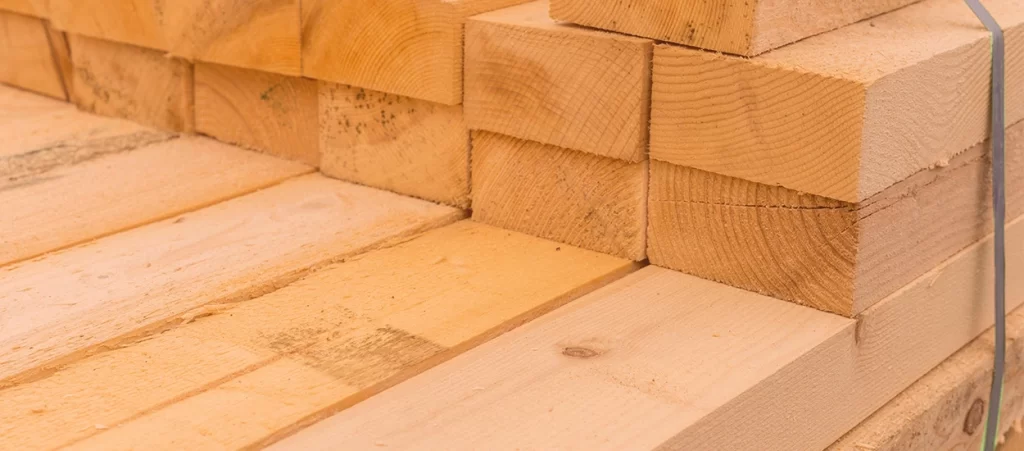
China, being the central hub of manufacturing for the world, boasts its efficiency in the manufacturing of diverse products.
This includes building elements such as iron and cement, and embellishments such as glass and ceramics.
Chinese manufacturers can boast significant experience in the production of building materials.
A very wide range of products can be sourced in China for importation, and this is one of the advantages of importing building materials.
Besides this, you will not have to fear for lack of products required for your target market, as is usually the case with other markets.
Indeed, many buyers lose potential purchases merely because they cannot locate the kind of products they are looking for.
3. Product Quality
Why is the quality of building materials manufactured in China superior to those produced in other countries?

In China’s building material sector, stringent administrative standards are mandated for quality assurance. Each product undergoes necessary licensing protocols.
The AQSIQ is a governmental body that oversees these product inspections, applying distinct regulations for various building materials.
Several Chinese cities, known as manufacturing powerhouses, have enacted stricter local standards.
These require comprehensive material lists, compliance certificates from renowned testing agencies, mandatory product licensing, documentation for international approval, and assurances of product quality.
More Related Articles:
Final Thoughts
Are you ready to import building materials from China? Once you fully understand the process, you’ll realize it’s a very smart decision. Sourcing products from China can bring you many benefits.
Of course, you need to choose the right building material supplier, or you might end up with bad-quality products or insufficient quantities.
Sourcing products isn’t just about giving money to these suppliers to solve all problems.
No worries, you can contact us. Owlsourcing can help you reduce the cost of importing building materials from China. You can email us at [email protected] with your project details, and we’ll get back to you promptly.

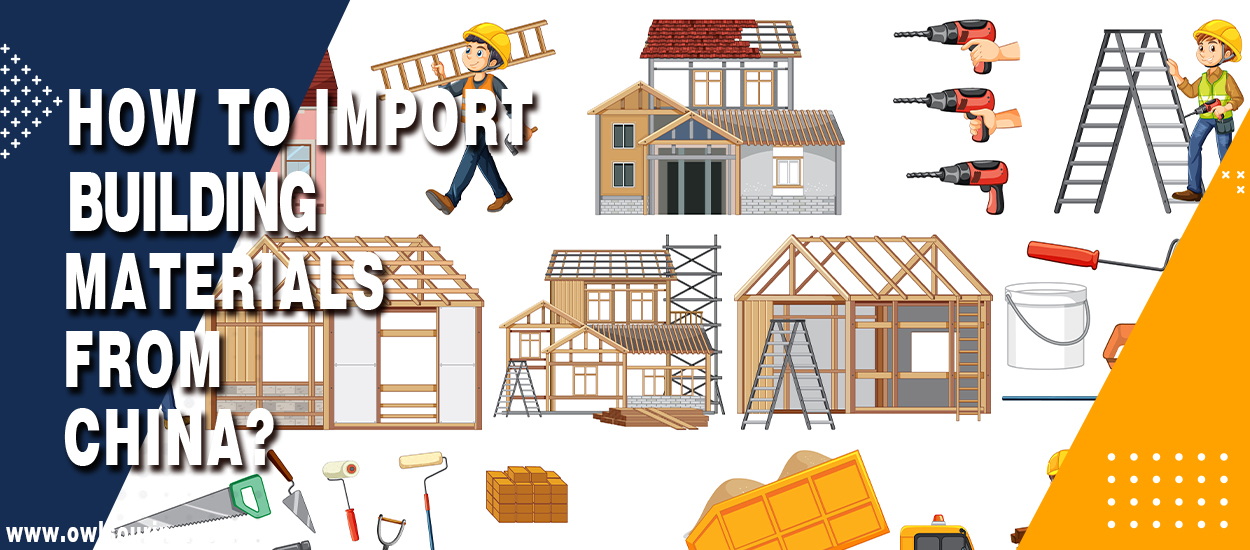

2 thoughts on “How to Import Building Materials From China in 2025?”
Great article on importing building materials from China! It answered many of my questions. I’m curious about quality control during the import process. Could you share tips on ensuring the materials meet the required standards? Thanks a bunch!
Hi Michael. Thank you for your affirmation and questions! Regarding the quality control of building materials imported from China, it is indeed a very important topic. I suggest that you can ensure quality standards through the following aspects: (1) Select reputable suppliers; (2) Clarify quality standards; (3) Conduct sample inspection; (4) On-site inspection and supervision. You can also contact us. We provide quality control services; (5) Understand relevant regulations and standards.
Hope these suggestions are helpful. If you have additional questions or need more detailed advice, feel free to ask. Good luck with your import matters!